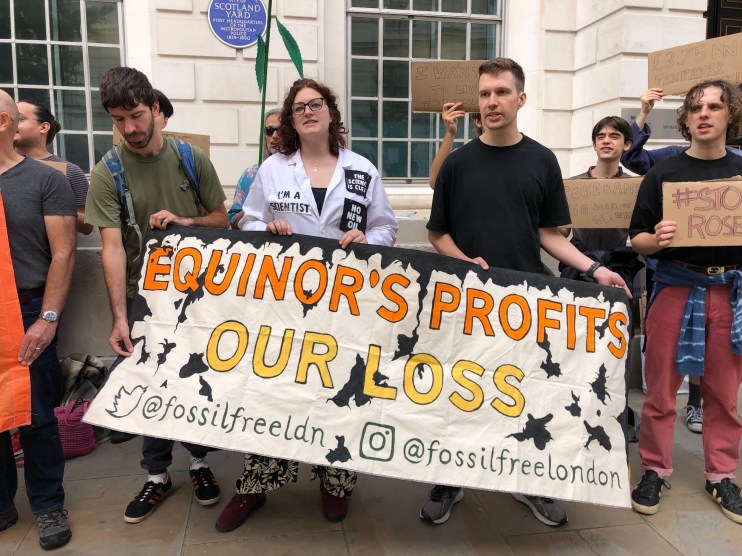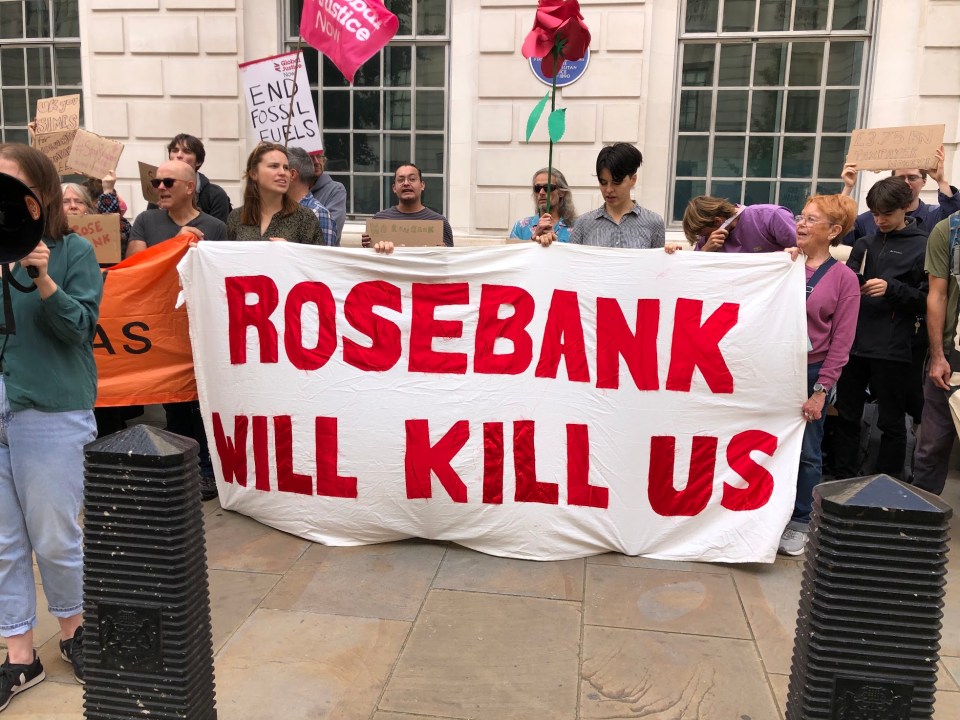Rosebank: Climate campaigners prepare legal action against oil and gas field

Climate campaigners have vowed to take legal action against the decision to allow drilling for oil and gas at Rosebank – the largest untapped fossil fuel field in the North Sea.
Rosebank is expected to produce up to 300m barrels of oil over its operational lifetime, with production expected from 2026/27.
Campaign group Uplift told City A.M. it was preparing to launch a judicial review in Scotland, arguing the project is in breach of the government’s legally-binding net zero commitments.
Tessa Khan, executive director and founder of Uplift, said she has written to the secretary of the state and industry regulator the North Sea Transition Authority (NSTA), warning them of the pending legal challenge.
“There are strong grounds to believe that the way this government has come to this decision is unlawful,” she said.
She recognised that while the government is yet to release the details of the decision, “based on what we already know, we believe the decision risks blowing the UK’s climate targets.”
Khan believed it was “unlikely to have assessed downstream emissions or the full extent of marine impacts of the approval, and the whole process has lacked transparency.”
“We shouldn’t have to fight this government for cheap, clean energy and a liveable climate, but we will,” she added.
Friends of the Earth climate campaigner, Danny Gross, said: “Our lawyers will carefully scrutinise the detail of government plans and stand ready to take further legal action if they fall short of what the law requires.”
Activists staged a protest in Westminster this morning, organised by climate groups such as Fossil Free London and Stop Rosebank, with dozens pictured holding placards outside the department for energy security and net zero.
They called for a further demonstrations this weekend and vowed to shut down the Energy Intelligence Forum next month, where Equinor chief executive Anders Opedal is due to speak.
Philip Evans, Greenpeace UK’s climate campaigner, said today’s decision was “nothing but carte blanche to fossil fuel companies to ruin the climate, punish bill payers, and siphon off obscene profits”.

The approval of drilling at the site roughly 80 miles west of the Shetland Islands was widely expected, with City A.M. reporting its imminent rubber stamping this summer, despite delays.
Prime Minister Rishi Sunak welcomed the decision this morning as a boost for supply security.
Claire Coutinho, energy security secretary, also argued the project was vital for the country’s energy security.
“The jobs and billions of pounds this is worth to our economy will enable us to have greater energy independence, making us more secure against tyrants like Putin,” she said.
Equinor, which holds an 80 per cent stake in Rosebank, also stepped in to defend the project today.
“We are not tone deaf. We are a net zero company. We have committed to net zero targets and are working really hard to decarbonise our upstream emissions together with scope three emissions through industrial solutions,” said Arne Gürtner, senior vice president UK and Ireland at Equinor.
Ithaca Energy, which has a remaining 20 per cent stake in the project, argued the development would “provide critically important domestic energy” and would “ignite substantial economic impact”.
The North Sea is a declining basin, a matter that will not be rectified by the project’s approval. The NSTA has forecast a sharp drop in capital expenditure in the North Sea from 2019 to 2028, falling from £5.42bn to £2.5bn, while decommissioning costs are set to rise from £1.39bn to £2.0bn.
The government has been approached for comment on the looming legal challenge.